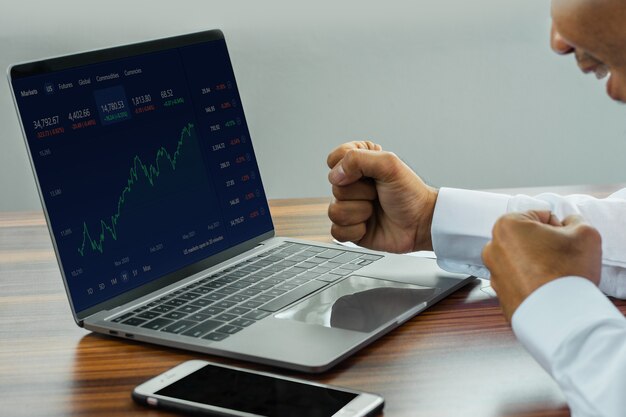Is Forex Trading Permissible in Islam? Understanding the Halal and Haram Perspectives
When it comes to Forex trading, the question of whether it is halal (permissible) or haram (forbidden) in Islam is a common and significant concern for Muslim investors. Forex trading, or foreign exchange trading, involves the buying and selling of currencies to make a profit. This global marketplace attracts millions due to its 24-hour operation and potential for high returns. However, for Muslims, any form of trading or investment must align with Islamic laws to be considered permissible.
Let’s explore the factors that determine the Islamic viewpoint on Forex trading through a comprehensive guide that will not only clarify these complexities but also empower you to make informed decisions.
📜 Understanding the Basics: Islamic Financial Principles
Prohibition of Riba (Interest)
One of the most critical aspects of Islamic finance is the prohibition of riba, commonly translated as interest. In Islam, money should only be a medium of exchange and not a commodity that generates profit on its own. Many traditional Forex accounts involve interest-bearing elements, such as overnight swaps, which are considered non-compliant with Sharia law.
Gharar (Uncertainty) and Maysir (Gambling)
Forex trading must also adhere to the prohibition of gharar (excessive uncertainty) and maysir (gambling). Transactions involving excessive risk or uncertainty could potentially fall into these categories unless the trade is conducted in a transparent and regulated manner.
📊 Exploring Different Opinions: Halal or Haram?
The Case for Forex Being Halal
- Contracts and Ownership: If trades are carried out with actual currency exchanges and are free from interest or speculative buying, they may be considered halal.
- Swap-Free Accounts: Many brokers offer swap-free or Islamic accounts that align with Sharia laws by removing interest elements.
- Legitimate Purpose: Engaging in Forex trading as a genuine business activity, aiming for reasonable profits while adhering to ethical norms might make it permissible.
The Case for Forex Being Haram
- Interest and Swaps: Standard accounts often incur interest through rollover fees, making traditional Forex trading potentially haram.
- Excessive Speculation: Some scholars argue that Forex inherently involves speculation, likening it to gambling.
- Lack of Ownership: If a trader doesn't take ownership of the currency within a specified time, it could contravene Islamic principles.
🙏 Scholar Opinions and Religious Guidance
Different scholars interpret these principles in varying ways, and it is recommended for Muslims to consult knowledgeable Islamic scholars or authorities before engaging in Forex trading. This ensures that their trading practices align with their personal beliefs and the teachings of Islam.
Key Considerations from Scholars
- Certification by Islamic Financial Institutions: Seek platforms that are certified by recognized Islamic financial institutions, which can provide a layer of assurance regarding compliance.
- Consulting Religious Authorities: Each decision should be informed by consulting with religious scholars or Islamic financial advisors who can offer tailored advice.
🔄 Transitioning to Sharia-Compliant Forex Trading
For those interested in pursuing Forex trading in a manner consistent with Islamic principles, the following steps can ensure a harmonious approach:
Opt for Islamic Forex Accounts
Many Forex brokers now offer special Islamic accounts designed for Muslim traders. These accounts are:
- Swap-Free: Eliminate any interest components by not charging rollover fees.
- Transparent: Maintain transparency in transactions, where both parties are fully aware of the terms.
- Sharia-Compliant Assurance: Often reviewed by an Islamic board to verify adherence to Islamic law.
Engage in Ethical Trading Practices
- Research Thoroughly: Understand the market thoroughly before making trades to minimize excessive risk.
- Implement Risk Management: Use tools such as stop-loss orders to manage risks and avoid the elements of gambling.
Participate in Ethical Investments
Suppose Forex trading is too complex or not aligning with your religious beliefs. In that case, consider other Islamic investment avenues such as Islamic mutual funds, equity funds, or Sukuk bonds, which comply with Sharia laws.
📋 Practical Takeaways and Tips
Here’s a handy summary of how to approach Forex trading in an Islamically compliant manner:
- 📚 Educate Yourself: Gain a deep understanding of the Forex market and its operations.
- 💼 Choose Wisely: Select a broker that offers Islamic accounts, certified to ensure compliance with Sharia law.
- 🔎 Seek Religious Counsel: Consult knowledgeable scholars for tailored advice.
- ❌ Avoid Riba: Ensure all money matters adhere to the prohibition of interest.
- 🛡️ Manage Risk: Implement sound risk management strategies to avoid excessive uncertainty and gambling.
🏁 Concluding Insights
For many Muslims, navigating the world of Forex trading with religious commitments requires thoughtful consideration. By understanding the principles of Islamic finance and utilizing resources like Islamic Forex accounts and scholarly advice, traders can make decisions that align with their faith while exploring global markets. Whichever path you choose, the key is to balance ambition with ethical considerations, ensuring that financial endeavors reflect personal and spiritual beliefs.
Indeed, while some may argue that Forex inherently involves elements that could classify it as haram, careful research and proper actions allow for engagement with this lucrative market in a potentially halal manner. Whether you dive into Forex trading or explore other options, doing so with integrity and informed knowledge remains crucial.

